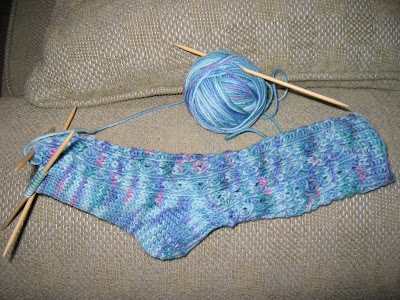My daughters are now 29. One of them is currently working on her master's degree, works in the same building I do, and came to live with me so that she could save money to take a trip to Europe. The trip is over, and now she is looking for a house to buy. It is fine with me that she is living here.
The other one has had a terrible problem with methamphetamine since she was 15 years old. She has been addicted to that terrible drug - with long periods of abstinence in between. She has not used it since she went into rehab in May of this year. She has, however, been drinking. She is NOT addicted to alcohol. She is absolutely unable to drink in any way even remotely resembling "normally," which is what I call alcoholism. But she does not drink every day. She does not ever know when her next drunk is going to appear on her doorstep. I can tell you that one showed up last night, but I digress...
In our rush to embrace everyone and discriminate against none, and also create treatment programs, plans, and books to sell to the masses, we have tried to lump addiction and alcoholism into one formless mass. It doesn't work.
Alcoholism ≠ Addiction. (for those not statistically inclined ≠ means "does not equal.")
They sometimes coincide, but they are not the same thing.
I happened to be an alcoholic who drank every day. Therefore I was not only an alcoholic, but I was an alcohol addict. This is not the case for every alcoholic. And I do not believe that every alcohol addict is necessarily an alcoholic. The big book even tells us that there are heavy drinkers who can quit if they have adequate motivation. But if you are an alcoholic, motivation has very little to do with quitting. I had motivation galore, but it didn't get me to quit drinking. I believe that is because I have a disease called alcoholism. The big book describes it.
But we go out and buy books to describe it better. Newer books without the archaic language of the big book. We now cough up our money for books with flowery language about what wonderful people we are, how very complex and interesting we are, how flawed we are, but it isn't our fault! The big book is all about ego deflation, but ego deflation is not a big marketing tool if you are looking to sell a book.
So my daughter called me last night to say that she was on her way to a meeting at York Street. Well, this is music to my ears, but I have known this girl for a long time. I said something like "that sounds nice, it doesn't sound like the truth, but it sounds nice." Later she sent me a sad text "I've been drinking so I'm not coming home. I'm sorry." Those couple of words just scream heartbreak. I feel so bad for her. She was so sure she was done drinking. She has a hard time believing she is an alcoholic because she doesn't drink every day. She is a binge drinker. When she drinks, it is not pretty. God alone knows what happened last night. And it is between my daughter and God. I am not part of this equation.
About a year ago, her "nice" boyfriend wanted desperately for her to quit meth. Well, so did I. She needed a clean UA to get into some rehab or another, so she quit for a few days. But she drank instead. This nice man, who has spent his life in law enforcement, was amazed to tell me that he would almost rather see her on meth than drinking. Well, me too.
There is so much misinformation out there about addiction, alcoholism, "twelve-step programs," the disease concept, recovery, Alcoholics Anonymous, and various treatment schemes. It wouldn't really matter if it weren't a matter of life and death, but for alcoholics, it is a matter of life and death.
When people alter the truth just a smidge to sell a book, they may make a dollar or two, but how many people are they killing? Do they care? When we sit in an AA meeting and say that addiction and alcoholism are the same, how many people are we killing? Do we care?
When we lump them together, only a few can relate.
I get e-mails from people who know they have a problem with alcohol, but they aren't addicted to alcohol, and therefore don't think there is an answer for them. How sad is that?
About a year ago I wrote a post called "Why do people hate AA?" It has been interesting to see the comments that has provoked. Some of the comments make sense. But I think most are based on misunderstanding. And that is sad to me.
We have a beautiful program. I think we should respect that and try to protect it instead of bastardizing it to fit some self-serving agenda.



)











